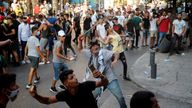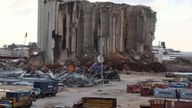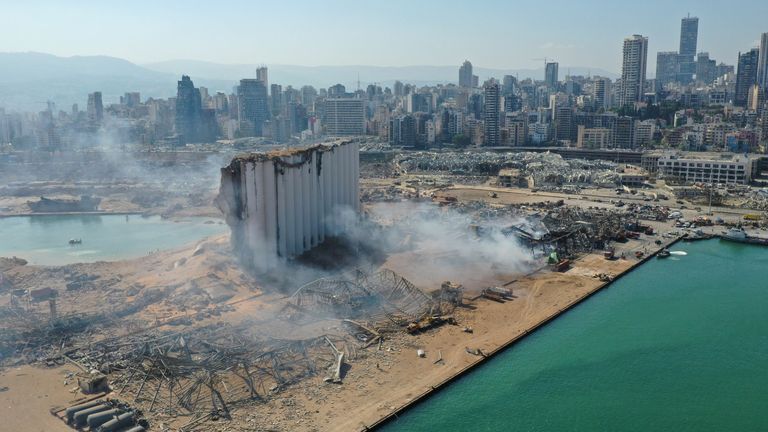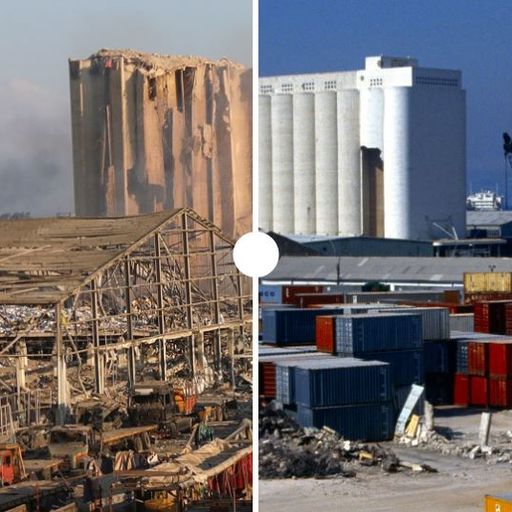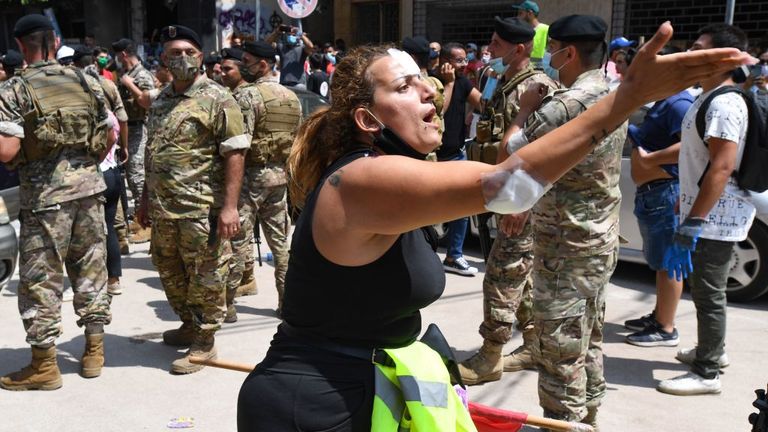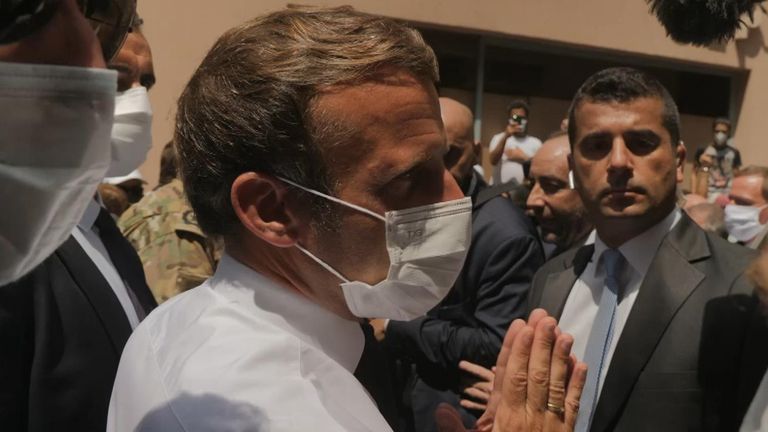Beirut explosion: Lebanon's president doesn't rule out 'rocket or bomb' as possible cause
International rescue teams are still searching the rubble of the city's flattened port as the number of dead rises to 154.
Friday 7 August 2020 13:37, UK
Lebanon's president has said an investigation into the Beirut explosion is exploring the possibility it was caused by "a rocket or a bomb".
Michel Aoun spoke on Friday after the number of victims in the explosion rose to 154, with another 5,000 people injured.
Mr Aoun told local media: "The cause has not been determined yet.
"There is a possibility of external interference through a rocket or bomb or other act."
International rescue teams are still searching the rubble of Beirut's port nearly three days after the explosion hit the city.
At least three more bodies were recovered in the 24 hours leading up to Friday morning, bringing the total to 149.
Lebanon's health minister later said at least 154 people had died in the blast on Tuesday.
French and Russian rescue teams with dogs were seen searching the port area on Friday.
Among those located in the rubble was Joe Akiki, a 23-year-old port worker who had been missing since the explosion.
Dozens of people are still missing.
Some 300,000 people, more than 12% of Beirut's population, are unable to return to their homes because of the explosion, which blew out doors and windows across the city and left many buildings uninhabitable.
Officials have estimated losses at $10bn to $15bn (£7.6bn to £11bn).
The United Nations High Commissioner for Refugees (UNHCR) in Geneva has said the need for shelter in Beirut is "massive".
The UN's children agency UNICEF has said up to 100,000 children have had their families's homes damaged and are displaced because of the explosion.
UNICEF added it lost 10 containers of personal protective equipment (PPE) in the blast and has placed an order to replace the items.
The Food and Agriculture Organisation of the United Nations has said the grain silo destroyed in Tuesday's blast was the country's only one.
The port director in the Lebanese city of Tripoli has said plans to build another 150,000 tonne grain silo there have been shelved due to a lack of funding.
It comes as the US has pledged over $17m (12.9m) in initial disaster aid for Lebanon.
The US embassy said in a statement the aid included food assistance, medical supplies and financial assistance for the
Lebanese Red Cross.
The World Food Programme (WFP) plans to import wheat flour and grains for bakeries and mills to help protect against food shortages across Lebanon.
The United Nations agency said on Friday: "WFP is concerned that the explosion and the damage to the port will exacerbate an already grim food security situation - that has worsened because of the country's profound financial crisis and the COVID-19 pandemic.
"WFP also stands ready to offer supply chain management and logistical support and expertise to Lebanon."
The developments come a day after France's President Emmanuel Macron paid a visit to the blast site and promised aid.
:: Listen to the Daily podcast on Apple Podcasts, Google Podcasts, Spotify, Spreaker
He also said Lebanon needed a new "political initiative" as part of the rebuilding process because of corruption in the country.
Protests have erupted in Beirut as residents blame the country's leaders for the explosion.
Lebanon was mired in a severe economic crisis before the blast that was also widely blamed on the political class.
The explosion was apparently caused by the ignition of 2,750 tonnes of ammonium nitrate - a chemical used for explosives and fertiliser.
It had been stored at the port since it was confiscated from an impounded cargo ship in 2013.




